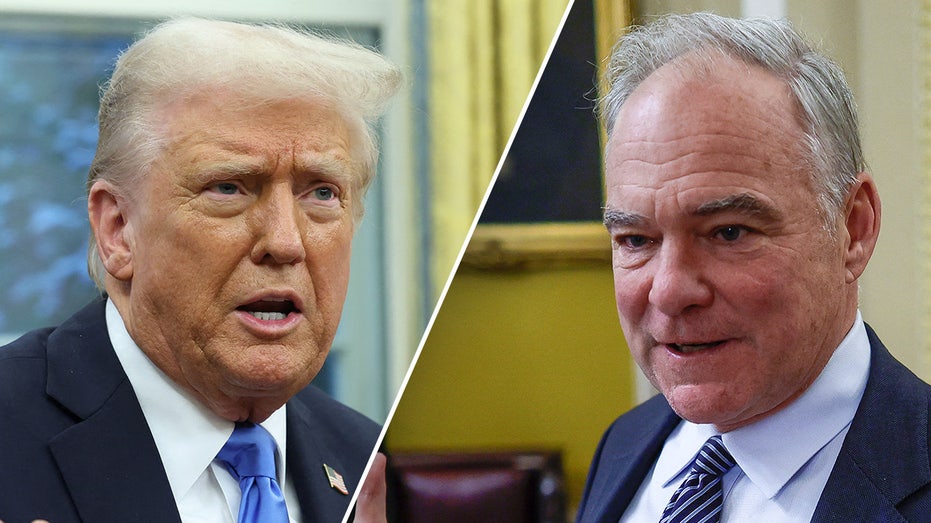
Union Minority Affairs Minister Kiren Rijiju will re-introduce the contentious Waqf (Amendment) Bill, 2024 in the Lok Sabha today, April 2. The Bill amends the Waqf Act, 1995, which governs the management of Waqf properties in India. The Bill proposes sweeping changes empowering the government to address issues and challenges in regulating and managing Waqf properties.
It seeks to improve the administration and management of Waqf properties in India. Rijiju had first introduced the Bill in August last year after which it was referred to a Joint Parliamentary Committee (JPC) for further scrutiny. On February 27, the JPC cleared 14 amendments moved by the members of the BJP or its allies in theNational Democratic Alliance (NDA) With the parties in both the ruling BJP-led National Democratic Alliance and the opposition INDIA bloc showing no inclinations towards bipartisan consensus building, the stage is set for a heated debate in both the Lok Sabha and the Rajya Sabha.

Why is the Bill controversial? What are those in favour and those against arguing? LiveMint explains: What does “Waqf” mean? 'Waqf' means voluntary, permanent, irrevocable dedication of a portion of ones wealth in cash or kind in charity as recognised by Muslim Law. The concept of ‘Waqf’, which arrived with the advent of Islam, refers to the permanent dedication of movable or immovable property for the purposes enshrined in Islam as religious, or charitable. Waqf means that the ownership of the property is now taken away from the person making Waqf and transferred and detained by God.
‘Waqif’ is a person who creates a waqf for the beneficiary. As Waqf properties are bestowed upon God, in the absence of a physically tangible entity, a ‘mutawalli’ is appointed by the waqif, or by a competent authority, to manage or administer a Waqf. Once designated as waqf, the ownership is transferred from the person making the waqf (waqif) to God, making it irrevocable.
What are the Waqf Properties? In India, several properties fall under Waqf, which include mosques, Eidgahs, dargahs, khanqahs, imambaras, and qabristans (graveyards), among others. Waqf properties are donated by followers of Islam and are managed by members of the community. Each state has a Waqf Board, which is a legal entity that can acquire, hold, and transfer property.
Waqf properties cannot be sold or leased permanently. What is theorigin of the concept of ‘Waqf’? In India, the history of Waqf can be traced back to the early days of the Delhi Sultanate when Sultan Muizuddin Sam Ghaor dedicated two villages in favour of the Jama Masjid of Multan and handed its administration to Shaikhul Islam. As the Delhi Sultanate and later Islamic dynasties flourished in India, the number of Waqf properties kept increasing in India.
Have there been efforts to abolish Waqfs? There was a case made for the abolition of Waqfs in India in the late 19th Century when a dispute over a Waqf property ended up in the Privy Council of London during the days of the British Raj, according to a note by PIB. The four British judges who heard the case described the Waqf as “a perpetuity of the worst and the most pernicious kind” and declared Waqf to be invalid. However, the decision by the four judges was not accepted in India, and the Mussalman Waqf Validating Act of 1913 saved the institution of Waqf in India.
Since then, no attempt has been made to curb Waqfs. How much land does the Waqf Board control? Waqf Boards currently control 8.7 lakh properties spanning 9.
4 lakh acres across India with an estimated value of ₹ 1.2 lakh crores, according to the government data. India has the largest waqf holding in the world.
Further, Waqf Board is the largest landowner in India after the Armed Forces and the Indian Railways. How many movable, immovable, and Waqf Estates are registered under Waqf Board? There are 872,328 immovable and 16, 713 movable properties registered under Waqf Board. There are also 356, 051 Waqf Estates registered under Waqf Board.
Why amend the law? The government says that the 1995 law has some loopholes concerning the regulation of Waqf properties, title disputes, and the illegal occupation of Waqf land. The other major issues flagged by the government are limited diversity in theconstitution of Waqf Boards , misuse of power by Mutawallis, lack of effective coordination with local revenue authorities, sweeping power to Waqf Boards for claiming properties resulting in disputes and litigation, to name a few. The government says that the new law will bring down litigation and ensure transparency and efficiency in governing Waqf properties.
The issues in the existing law flagged by the government are: -Irrevocability of Waqf Properties -Litigation and Mismanagement -No Judicial Oversight -Unsatisfactory Survey Work: -Mis-use of Provisions -Constitutional Validity Is the government interfering? Those who oppose the bill question why bring a new law that changes the way Waqfs are managed. AIMIM chief Asaduddin Owaisi, one of the most vocal leaders against the Bill, has alleged that it is aimed at weakening the foundations of Waqf governance and undermining the rights of Muslims. Owaisi has accused that the Bill is intended to snatch away graveyards, khanqahs, and dargahs from Muslims.
The major concern among the critics is government's 'intention' to control the Waqf properties by regulating the management, and the power it gets through the new bill to determine whether or not a property is a Waqf. What has changed after JPC ? Section 40 of the Waqf Act empowers the Waqf Board to decide if a property is Waqf property. The Board's decision is final unless it is revoked or modified by the Waqf Tribunal.
The Bill, in its earlier form, extended this power, which currently lies with the Waqf Tribunal, to the District Collector. But after the JPC’s recommendations, the amended bill will propose that a government officer above the rank of collector will investigate government properties claimed as Waqf, preventing unwarranted claims. The earlier bill has proposed to do away with the “Waqf by user” provision, a category where a property is acknowledged as Waqf because it has been used for religious activities for some time.
Now, the new bill will apply this contentious provision only prospectively. This means Waqf properties that are already registered would remain under Waqf unless disputed or identified as government land..















